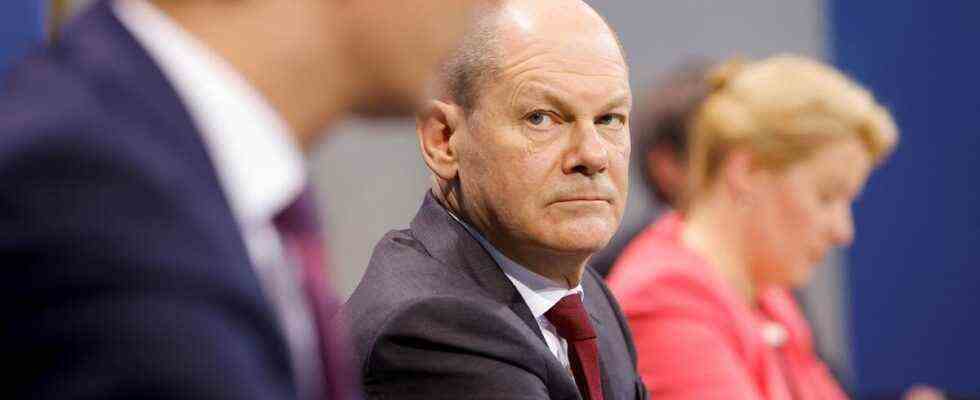Updated on 2/16/2022 at 5:46 p.m
- Chancellor Olaf Scholz presents far-reaching easing.
- From March 20th, the majority of the corona measures will no longer apply.
- Before that, various measures will be scaled back in two steps.
Chancellor Olaf scholz (SPD) has announced far-reaching opening steps in the corona pandemic. From March 20th, according to the will of the federal and state governments, most of the corona restrictions should be lifted. However, protective measures such as wearing a mask and keeping your distance should be maintained.
“We can look ahead with more confidence than we have been able to in recent weeks,” said scholz on Wednesday in Berlin after consultations with the federal and state governments. He spoke of a “very special day” in the pandemic. Germany came through the omicron wave better than neighboring countries. The apex has now been reached.
Scholz: “The pandemic is not over yet”
With the measures taken by the federal and state governments, health and life could be protected and a lockdown prevented. But the pandemic is not over yet, said the Chancellor. Despite all the optimism, one should not become careless.
One must take precautions for the time when the current measures would no longer apply, said the Chancellor. Scholz again campaigned urgently for the corona vaccination. “We mustn’t forget that next fall and next winter are coming.” Then the number of infections could rise again.
The Chancellor stuck to the goal of mandatory corona vaccination. Despite the planned easing, it should not be forgotten that there will be an autumn and a winter again, Scholz warned. Therefore, it remains right to prepare the legislation for a general vaccination requirement. “It will be necessary exactly when the weather starts to get colder again.” Most recently, the legislative process in the Bundestag had stalled.
Wüst: “We are in a new phase of the pandemic”
“We are now in a new phase of the pandemic,” said North Rhine-Westphalia’s Prime Minister Hendrik Wust (CDU). However, the chairman of the Prime Ministers’ Conference emphasized that politicians must now take precautions if the situation worsens again. “We need reliability and clarity in pandemic policy,” said Wüst. Caution is still required: you have to be careful not to endanger the first easing steps, said the CDU politician.
“If the Bundestag does not act actively, then all protective measures will expire on March 20,” Wüst continued. The pandemic is not based on the calendar. Therefore, not all measures should be thrown overboard. “All countries therefore agree that we need basic protection to secure the openings.” This included the obligation to wear masks, hygiene concepts, tests and distance rules.
scholz assured that his coalition agreed that there must be basic protection beyond March 20. It will be ensured that there will be a legal follow-up regulation so that basic measures can be taken if necessary. He considers the points mentioned by the prime ministers around MPK boss Wüst to be necessary.
Relaxation in three steps
The three-stage plan of the federal and state governments states: “In a third and final step from March 20, 2022, all more far-reaching protective measures should be dropped if the situation in the hospitals allows it.”
In a first step, contact restrictions for those who have been vaccinated and those who have recovered should therefore be completely eliminated – “without limiting the number of participants”. The access rule in retail only for vaccinated and recovered people (2G), which has already been abandoned in many federal states, is to be overturned nationwide. However, medical masks would have to be worn.
The 2G access restrictions and shopping controls introduced during the Corona crisis should also end. That said the co-chair of the Prime Ministers’ Conference, Berlin Mayor Franziska Giffy (SPD).
In a second step, from March 4th, access to the catering and hotel industry should not only be made possible for those who have been vaccinated and those who have recovered, but also for people with a negative test (3G). For major national events – including sports – the following should apply: indoors, an occupancy of up to 60 percent of the maximum capacity, a maximum of 6,000 spectators; outdoors up to 75 percent of the maximum capacity, a maximum of 25,000 spectators. (dpa/mko)

